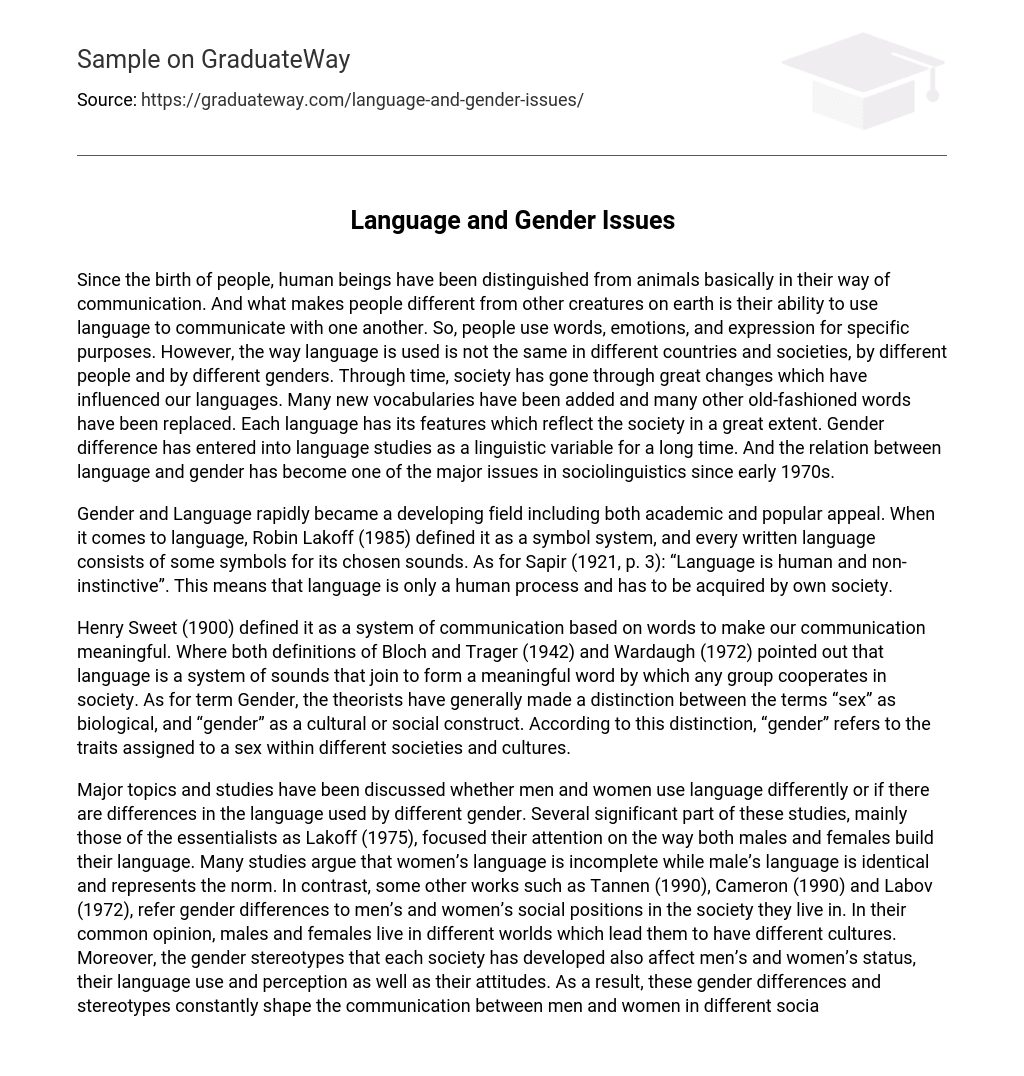Since the birth of people, human beings have been distinguished from animals basically in their way of communication. And what makes people different from other creatures on earth is their ability to use language to communicate with one another. So, people use words, emotions, and expression for specific purposes. However, the way language is used is not the same in different countries and societies, by different people and by different genders. Through time, society has gone through great changes which have influenced our languages.
Many new vocabularies have been added and many other old-fashioned words have been replaced. Each language has its features which reflect the society in a great extent. Gender difference has entered into language studies as a linguistic variable for a long time. And the relation between language and gender has become one of the major issues in sociolinguistics since early 1970s.
Gender and Language rapidly became a developing field including both academic and popular appeal. When it comes to language, Robin Lakoff (1985) defined it as a symbol system, and every written language consists of some symbols for its chosen sounds. As for Sapir (1921, p. 3): “Language is human and non-instinctive”. This means that language is only a human process and has to be acquired by own society.
Henry Sweet (1900) defined it as a system of communication based on words to make our communication meaningful. Where both definitions of Bloch and Trager (1942) and Wardaugh (1972) pointed out that language is a system of sounds that join to form a meaningful word by which any group cooperates in society. As for term Gender, the theorists have generally made a distinction between the terms “sex” as biological, and “gender” as a cultural or social construct. According to this distinction, “gender” refers to the traits assigned to a sex within different societies and cultures.
Major topics and studies have been discussed whether men and women use language differently or if there are differences in the language used by different gender. Several significant part of these studies, mainly those of the essentialists as Lakoff (1975), focused their attention on the way both males and females build their language. Many studies argue that women’s language is incomplete while male’s language is identical and represents the norm. I
n contrast, some other works such as Tannen (1990), Cameron (1990) and Labov (1972), refer gender differences to men’s and women’s social positions in the society they live in. In their common opinion, males and females live in different worlds which lead them to have different cultures. Moreover, the gender stereotypes that each society has developed also affect men’s and women’s status, their language use and perception as well as their attitudes. As a result, these gender differences and stereotypes constantly shape the communication between men and women in different social contexts.





